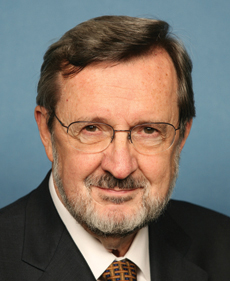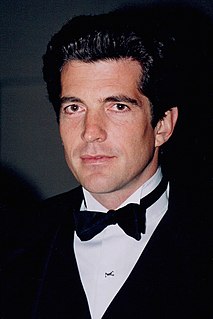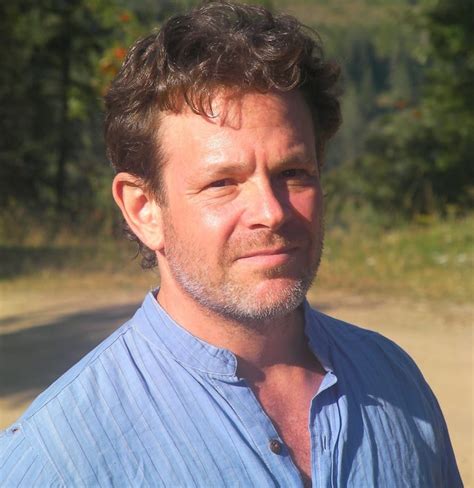Top 1200 Information Technology Quotes & Sayings - Page 20
Explore popular Information Technology quotes.
Last updated on November 15, 2024.
The key to using the Internet to extend and build relationships is to view ownership of information differently-you need to bring customers inside your business to create information partnerships ... relationships become the differentiator, more than products or services. Businesses become intertwined.
I have a really deep belief that we create technologies to empower ourselves. We've invented a lot of technology that just makes us all faster and better, and I'm generally a big fan of this. I just want to make sure that this technology stays subservient to people. People are the number one entity there is on this planet.
Because your brain uses information from the areas around the blind spot to make a reasonable guess about what the blind spot would see if only it weren't blind, and then your brain fills in the scene with this information. That's right, it invents things, creates things, makes stuff up! It doesn't consult you about this, doesn't seek your approval. It just makes its best guess about the nature of the missing information and proceeds to fill in the scene.
The magic happens when you take facts and figures, features and benefits, decks and PowerPoints - relatively soulless information - and embed them in the telling of a purposeful story. Your 'tell' renders an experience to your audience, making the information inside the story memorable, resonant and actionable.
I try to see what the dream might be referring to - because the information in the world is being interpreted by my brain which only has the concepts derived from our five senses. So I think of the sequences in my dream as my brain doing its very best to process information in a way it knows I can deal with.
One of the expressions of Western over-reliance on technology can be seen in the lack of patience in industrial society. When you deal with technology, everything happens at the touch of a button. This conditions you to become so impatient that when you have an emotional or personal crisis, you don't allow time for the solution to take effect. This leads to all sorts of rash responses, like quarrels, fights and so on.
Warp speed developments in technology - automation, artificial intelligence, and the arrival of the sharing economy - are transforming how we work. Beyond technology, traditional working patterns are also being disrupted by changes in society, organizations and workforce management, leading to the rise of a more independent and dispersed workforce.
All thoughts are just junk. Essentially, they are coming from the limited experience of past. These thoughts are useful for your survival process. You've picked up some amount of information; you want to survive in the world; this information is useful. If you're looking at life itself, these thoughts are meaningless.
An important verity about knowledge is that the brain works most effectively with consciously retained information. We more easily remember what we want to recall later. When we feed our fourteen billion brain cells with information that will enrich us and help others, we are really learning to Think Big.
As many of my colleagues know, TikTok, like other Chinese companies is required under Chinese law to share information with the government and its institutions. There are real concerns that this app could also collect information on users in the United States to advance Chinese counter-intelligence efforts.
The key thing is to invest in the future, and what that means is - when you're deploying technology or you're a technology business - is to make sure that you're keeping on the innovation cycle, where you're both creating and adopting the new business practices and the new techniques in order to drive your business the right way.
We have a way of dealing with information that has sort of personal - personally identifying information in it. But there are legitimate secrets - you know, your records with your doctor; that's a legitimate secret. But we deal with whistleblowers that are coming forward that are really sort of well motivated.
A journalist gathers information for a media outlet that disseminates the information through a broadly defined 'medium' - including newspaper, nonfiction book, wire service, magazine, news Web site, television, radio or motion picture - for public use. This broad definition covers every form of legitimate journalism.
As part of our layered approach, we have expedited the deployment of new Advanced Imaging Technology (AIT) units to help detect concealed metallic and non-metallic threats on passengers. These machines are now in use at airports nationwide, and the vast majority of travelers say they prefer this technology to alternative screening measures.
If men were able to be convinced that art is a precise advance knowledge of how to cope with the psychic and social consequences of the next technology, would they all become artist? Or would they begin a careful translation of new art forms into social navigation charts? I am curious to know what would happem if art were suddenly seen for what it is, namely, exact information of how to rearrange one's psyche in order to anticipate the next blow from our own extended faculties.
I am a former engineer and I was really excited about the possibility of building better technology to serve humanity. A lot of us as engineers have this belief that if you build a tool you somehow can empower humans economically or socially. The idea of building a better technology often means more efficiency.
I am confident that for the foreseeable future (barring some catastrophic event affecting economic, energy, electrical, and communications systems), many subpopulations that use information intensively (e.g., students, academics, library patrons, white collar workers) will be using some sort of portal information appliance.
Technologists provide tools that can improve people's lives. But I want to be clear that I don't think technology by itself improves people's lives, since often I'm criticized for being too pro-technology. Unless there's commensurate ethical and moral improvements to go along with it, it's for naught.
With communication technology in general, there's a kind of certain critical mass of people. Once you get to 15% of the world's entire population using one communication technology, that's a big deal. It's beyond the theoretical at this point. The people who think it's a fad have probably not been paying that much attention.
Learn to take losses quickly and cleanly. There is something about inside information which seems to paralyze a man's reasoning powers. Beware of barbers, beauticians, waiters - or anyone - bringing gifts of 'inside' information or tips. Don't try to be a jack of all investment. Stick to the field you know best.
A moderate tax on robots, even a temporary tax that merely slows the adoption of disruptive technology, seems a natural component of a policy to address rising inequality. Revenue could be targeted toward wage insurance, to help people replaced by new technology make the transition to a different career.
The key thing is to invest in the future and what that means is when you're deploying technology or you're a technology business, is to make sure that you're keeping on the innovation cycle, where you're both creating and adopting the new business practices, and the new techniques in order to drive your business the right way.
When we were doing the "Angel Dust" thing we got information from the National Institute of Drug Abuse because we knew that if we went out and said something about angel dust people were going to ask questions about it and we wanted to be sure we had all the information to deal with it when those questions came up. So it's all a question of being as prepared as possible out front, so that if you are going to deal with information it'll be correct. A lot of people won't check it out but some people will.
The apologists for space science always seem over-impressed by engineering trivia and make far too much of non-stick frying pans and perfect ball-bearings. To my mind, the outstanding spin-off from space research is not new technology. The real bonus has been that for the first time in human history we have had a chance to look at the Earth from space, and the information gained from seeing from the outside our azure-green planet in all its global beauty has given rise to a whole new set of questions and answers.
If I were writing an article for the newspaper, it would be thesis statement, information, information, supporting arguments. That would be the setup. When I'm making a documentary, the pacing of the film and the way that you sort of switch from character to character - all of those are more about storytelling than straight journalism.
There are a lot of sources of information out there, so why don't you curate for yourself a list, like a real timeline of information, like the New York Times, or JetBlue, or your friends, or this comedian, or this guy who pretends to be a cat, or whatever it is, whatever entertains you, whatever you find useful.
The communications revolution has given millions of people both a wider and more detailed understanding of the world. Because of technology, ordinary citizens enjoy access to information that formerly was available only to elites and nation-states. One consequence of this change is that citizens have become acutely conscious of environmental destruction, entrenched poverty, health catastrophes, human rights abuses, failing education systems, and escalating violence. Another consequence is that people possess powerful communication tools to coordinate efforts to attack those problems.
I had this talent for these stupid little teenage songs. I just couldn't get anyone to sing my songs, so I had to sing my own tunes. ... The thing is to be able to outlast the trends. ... They are actually manufactured entertainment groups. They are a product of technology. What you are listening to is technology.

























































